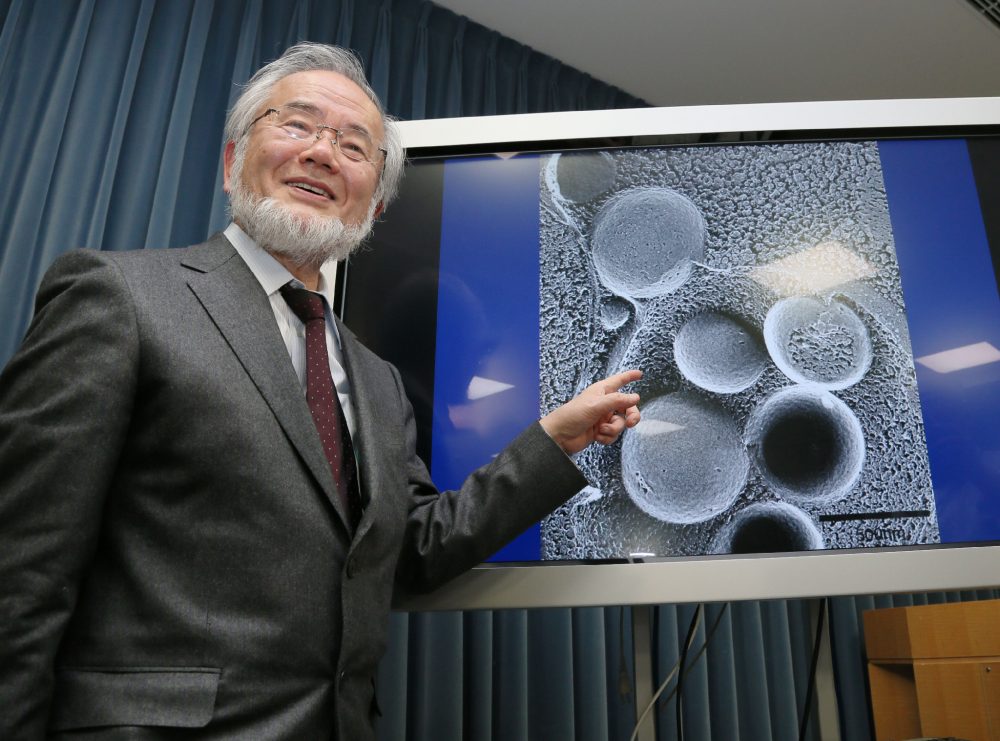Advertisement
Research On 'Self-Eating' Cell Parts Wins Nobel Prize In Medicine
Resume
Yoshinori Ohsumi has won the Nobel Prize in Physiology or Medicine for his work on autophagy, the process by which cells recycle amino acids and other organic compounds. The word means "self eating," which describes how the cell part known as the lysosome uses enzymes to consume and repurpose defunct proteins.
Dr. Ohsumi's research on yeast cells fills in a gap in basic knowledge about cell biology and could lead to insights into neurodegenerative disorders like ALS and Parkinson's disease, as well as Crohn’s disease and other inflammatory syndromes.
Here & Now's Jeremy Hobson talks with Erika Holzbaur, professor of physiology at the University of Pennsylvania, about the significance of this year's Nobel Prize in medicine.
Guest
Erika Holzbaur, professor of physiology at the University of Pennsylvania's Perelman School of Medicine. The school tweets @PennMedicine.
This segment aired on October 3, 2016.